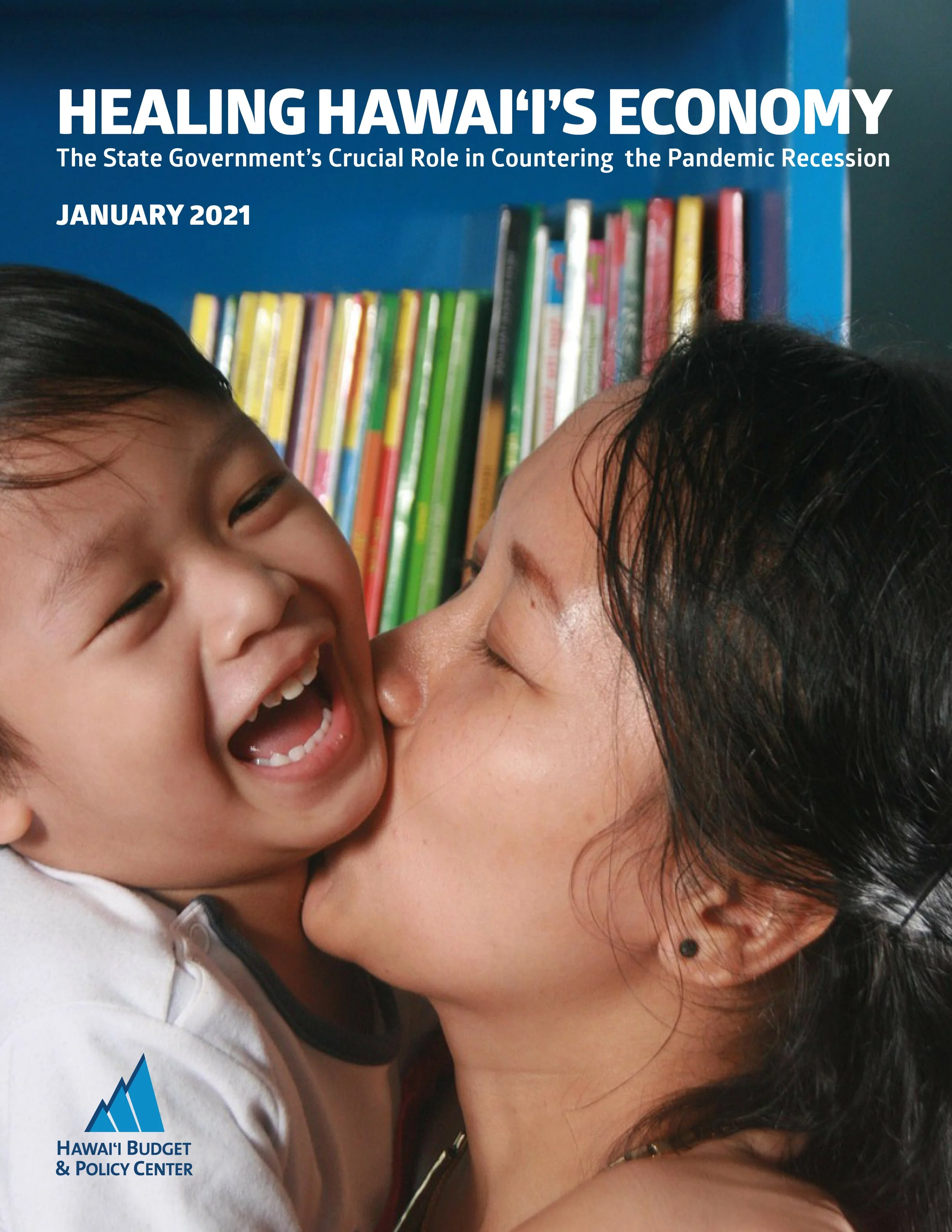Healing Hawaiʻi’s Economy
The State Government’s Crucial Role in Countering the Pandemic Recession.
Executive Summary
The devastation of the COVID-19 pandemic goes beyond the tragedy of infection rates and death counts. In October 2020, the U.S. Census Bureau’s Household Pulse Survey reported that nearly 60 percent of Hawaiʻi respondents had at least one member of the household who lost employment income since March. Approximately one in three has found it somewhat or very difficult to pay for usual household expenses. The pandemic recession calls for state policymakers to use the lessons learned during the Great Recession to restore Hawaiʻi’s economy.
Government exists to carry out the public good—those services we all depend on that can’t be performed individually. One of these essential services is economic regulation. During economic downturns, government needs to increase spending to counteract the drop in private sector activity. In other words, when the engine of private sector spending sputters, government has to provide the back-up power to keep the economy aloft. Another essential government service is to increase support for basic needs—food, healthcare, housing—for people hurt by a bad economy. For these reasons, prudent governments do not cut jobs or services in hard times.
Although the federal government has the primary responsibility for stimulus, Hawaiʻi’s state government also has a very significant impact on the health of the economy and the wellbeing of the people who live here. The COVID-19 pandemic has only added to the list of responsibilities our state government needs to address.
This brief shares lessons learned during the Great Recession to guide Hawaiʻi’s policymakers as we rebuild a vibrant economy in the wake of the pandemic. It provides strategies to increase revenues that will help Hawaiʻi make a strong recovery.

